
Essen: The Green Heart of the Ruhr Area
Essen, located in the heart of Germany's Ruhr region, is a blend of rich industrial history and lush green landscapes. Once known primarily for coal and steel production, Essen has transformed into a vibrant metropolis with a focus on culture, nature, and innovation. Visitors can explore the city's industrial heritage at the UNESCO World Heritage Site, Zollverein Coal Mine Industrial Complex. This impressive site offers a glimpse into the past while housing modern art galleries and cultural events. Nature enthusiasts will find a haven in Essen's extensive green spaces. The Grugapark, one of the largest urban parks in Europe, offers beautifully landscaped gardens, a zoo, and various recreational activities. The Baldeneysee, a large lake, is perfect for boating, cycling, or simply relaxing by the water. Essen's commitment to green living earned it the title of European Green Capital in 2017. Cultural experiences abound in Essen. The Museum Folkwang boasts an extensive collection of modern art, while the Aalto Theatre is renowned for its opera and ballet performances. The city's culinary scene is also a delight, with a mix of traditional German fare and international cuisine. Don't miss the chance to try local specialties like 'Pfefferpotthast' and 'Rheinischer Sauerbraten'. Essen's shopping districts, such as Limbecker Platz, offer a variety of shops, from high-end boutiques to local markets.
Local tips in Essen
- Visit Zollverein early in the day to avoid crowds and fully enjoy the exhibits.
- Rent a bike to explore Baldeneysee and the surrounding nature trails.
- Check the schedule for the Aalto Theatre in advance to book tickets for popular shows.
- Try visiting the Grugapark during spring or summer when the gardens are in full bloom.
- Sample local dishes at traditional restaurants for an authentic Essen culinary experience.
Essen: The Green Heart of the Ruhr Area
Essen, located in the heart of Germany's Ruhr region, is a blend of rich industrial history and lush green landscapes. Once known primarily for coal and steel production, Essen has transformed into a vibrant metropolis with a focus on culture, nature, and innovation. Visitors can explore the city's industrial heritage at the UNESCO World Heritage Site, Zollverein Coal Mine Industrial Complex. This impressive site offers a glimpse into the past while housing modern art galleries and cultural events. Nature enthusiasts will find a haven in Essen's extensive green spaces. The Grugapark, one of the largest urban parks in Europe, offers beautifully landscaped gardens, a zoo, and various recreational activities. The Baldeneysee, a large lake, is perfect for boating, cycling, or simply relaxing by the water. Essen's commitment to green living earned it the title of European Green Capital in 2017. Cultural experiences abound in Essen. The Museum Folkwang boasts an extensive collection of modern art, while the Aalto Theatre is renowned for its opera and ballet performances. The city's culinary scene is also a delight, with a mix of traditional German fare and international cuisine. Don't miss the chance to try local specialties like 'Pfefferpotthast' and 'Rheinischer Sauerbraten'. Essen's shopping districts, such as Limbecker Platz, offer a variety of shops, from high-end boutiques to local markets.
When is the best time to go to Essen?
Iconic landmarks you can’t miss
UNESCO-Welterbe Zollverein
Explore the Zollverein Coal Mine Industrial Complex, a UNESCO World Heritage site in Essen, Germany, where industrial history meets contemporary culture and innovation in the heart of the Ruhr region.
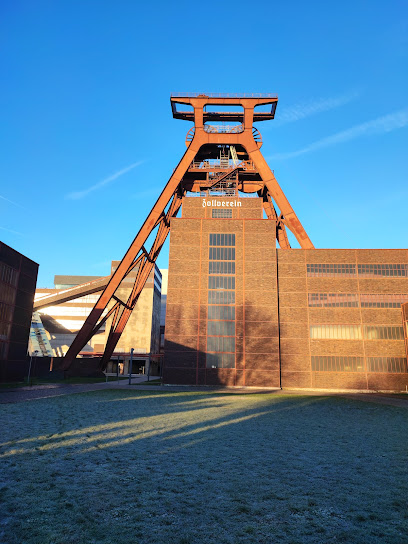
Grugapark Essen
Discover Essen's green heart: Grugapark, a sprawling urban oasis with botanical gardens, animal encounters, art, and recreation for all ages, offering a refreshing escape in the Ruhr region.
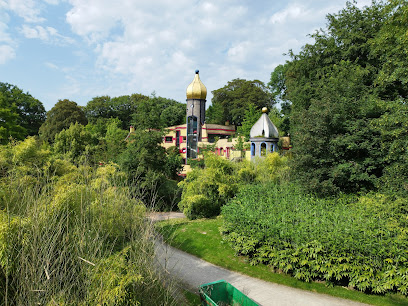
Museum Folkwang
Discover masterpieces from Van Gogh to Richter at Museum Folkwang in Essen, Germany, showcasing 19th-century to contemporary art, photography, and the German Poster Museum, with free access to the permanent collection.
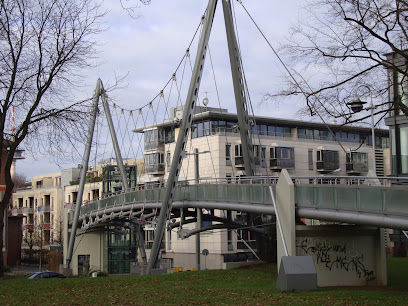
Villa Hügel
Explore Villa Hügel in Essen: A majestic mansion and park showcasing Germany's industrial heritage, art, and the legacy of the Krupp family, offering a unique cultural experience.
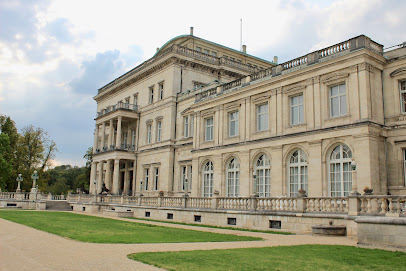
Hügel Park
Explore Hügel Park in Essen, a breathtaking blend of nature, history, and recreation in the heart of the city.
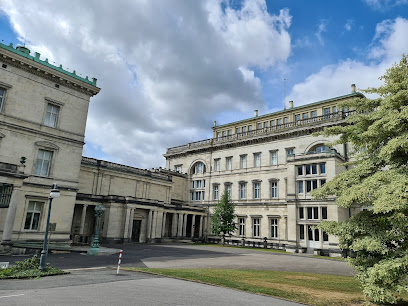
Stadtgarten
Discover Essen's oldest public park, a green oasis in the city center offering relaxation, recreation, and cultural experiences amidst beautiful lawns, gardens, and historical landmarks.
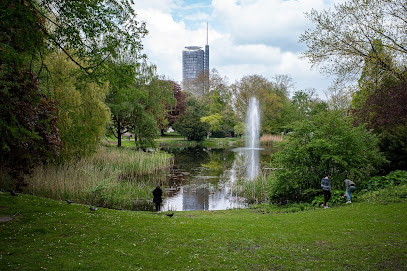
Phänomania Erfahrungsfeld
Discover the wonders of science at Phänomania Erfahrungsfeld, a hands-on museum perfect for families and curious minds visiting Essen.
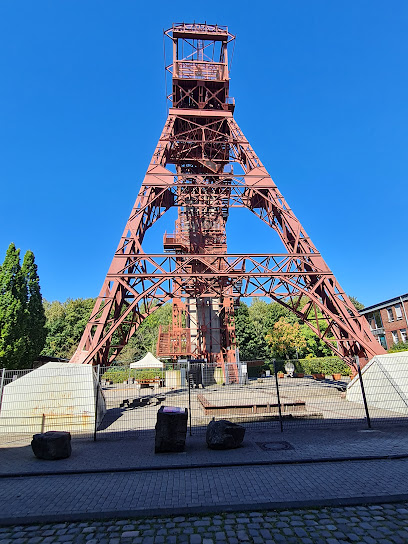
Red Dot Design Museum
Explore award-winning contemporary designs from across the globe within the iconic industrial setting of the Zollverein Coal Mine, a UNESCO World Heritage site in Essen.
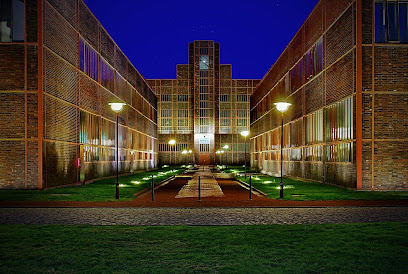
Essen Minster
Discover Essen Minster, a majestic cathedral blending Romanesque and Gothic architecture, home to the Golden Madonna and a treasury of priceless religious art in the heart of Essen.
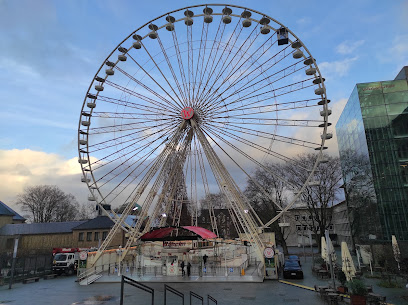
Ruine Neue Isenburg
Explore the medieval Ruine Neue Isenburg overlooking Baldeneysee, a historic Essen landmark offering stunning views and a journey back in time.
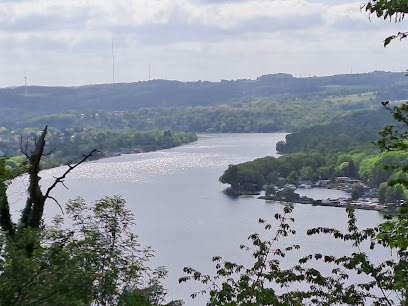
Alte Synagoge
Explore Jewish history and culture at Essen's Alte Synagoge, a beautifully preserved monument and vibrant cultural center, offering insightful exhibitions and engaging events.
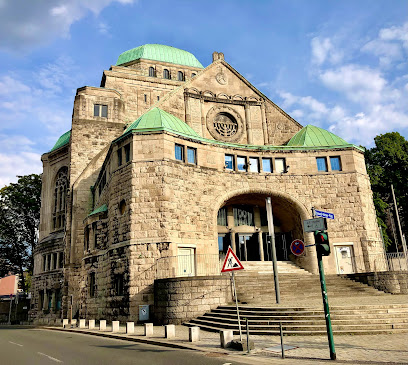
Essener Weihnachtsmarkt
Immerse yourself in the festive spirit at the Essener Weihnachtsmarkt, a traditional German Christmas market offering handcrafted gifts, culinary delights, and a magical atmosphere in the heart of Essen.
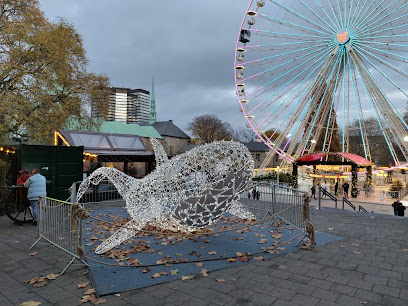
Altendorf Castle
Explore the medieval ruins of Altendorf Castle in Essen, Germany, a captivating historical landmark with scenic views and a vibrant cultural atmosphere.
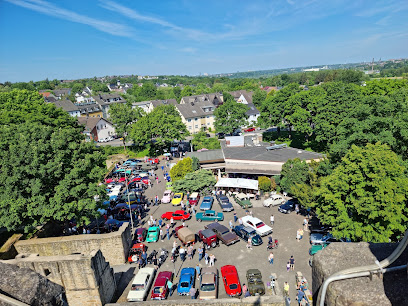
Grüne Mitte Essen
Discover Grüne Mitte Essen, a revitalized urban park connecting city and university, offering green spaces, water features, and a vibrant community atmosphere in Essen's heart.
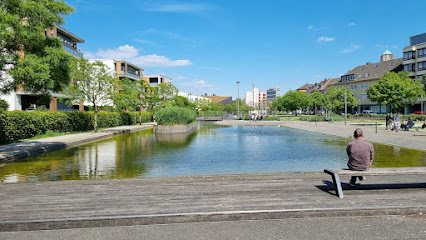
Hirschlandplatz
Experience the vibrant atmosphere of Hirschlandplatz in Essen, a charming square brimming with local culture and delightful eateries.
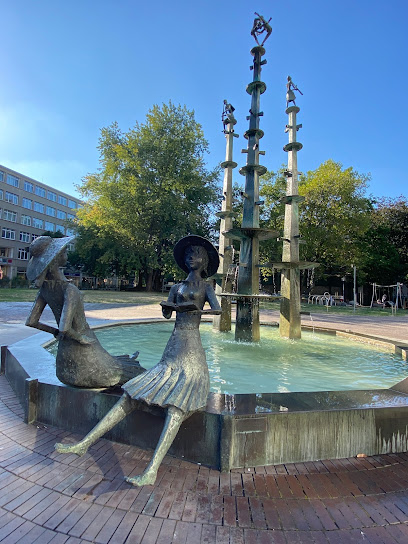
Unmissable attractions to see
Zollverein UNESCO World Heritage Site
Explore Zollverein, a UNESCO World Heritage Site in Essen, where industrial history meets contemporary culture and stunning architecture.
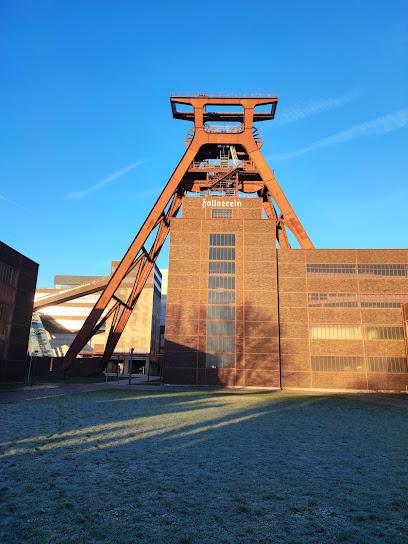
Starlight Express theatre
Discover the enchanting world of Starlight Express Theatre in Bochum, where roller-skating meets spectacular musical performances.
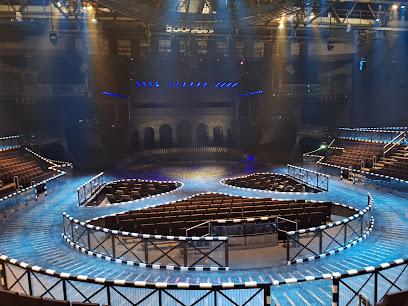
Westfalenpark
Discover the lush landscapes and cultural experiences in Westfalenpark, Dortmund's premier green space for relaxation and recreation.
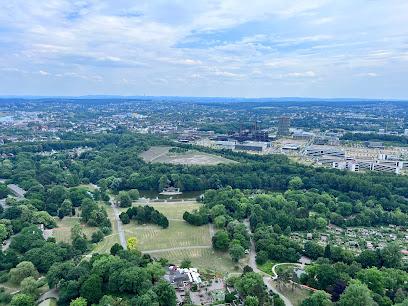
Grugapark Essen
Discover the breathtaking beauty of Grugapark Essen, where nature, art, and fun come together in an unforgettable experience for all ages.

Aquazoo Löbbecke Museum Dusseldorf
Explore the captivating Aquazoo Löbbecke Museum in Düsseldorf, where aquatic wonders and ecological education come together for an unforgettable experience.

Burg Castle
Explore the enchanting Burg Castle in Solingen, a historical gem with stunning views, fascinating exhibits, and beautiful hiking trails for all adventurers.
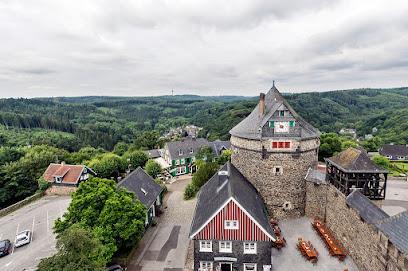
Classic Remise Düsseldorf
Explore Classic Remise Düsseldorf, where vintage car passion meets vibrant events in a stunning automotive atmosphere.
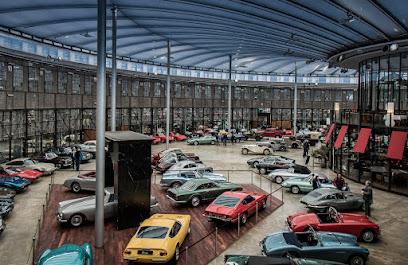
Schloss Benrath
Explore the stunning Schloss Benrath in Düsseldorf, a historical palace surrounded by beautiful gardens, perfect for cultural enrichment and leisure.
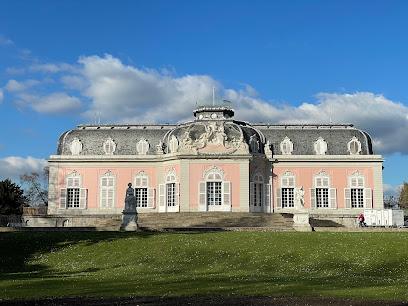
Schloss Nordkirchen
Explore the breathtaking Schloss Nordkirchen, a baroque castle surrounded by lush gardens, rich history, and stunning architecture in Nordkirchen.
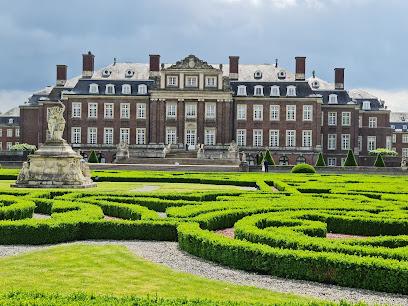
Rombergpark Botanical Garden
Experience the tranquility of nature at Rombergpark Botanical Garden in Dortmund, a lush oasis filled with diverse flora and scenic beauty.
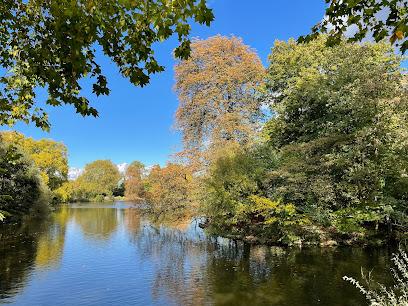
German Football Museum
Explore the heart of German football history at the German Football Museum in Dortmund, where passion and heritage come alive through interactive exhibits.

Hofgarten
Discover Hofgarten, Düsseldorf's picturesque park, where nature meets culture in a serene urban oasis ideal for relaxation and exploration.
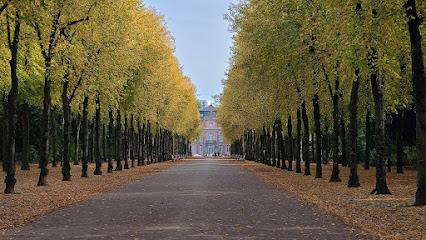
Phoenix des Lumières
Experience the fusion of art and technology at Phoenix des Lumières, Dortmund's premier immersive art center showcasing stunning exhibitions.
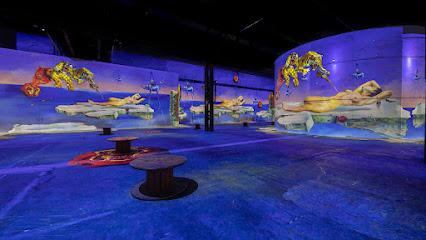
Wildpark Düsseldorf Grafenberg
Explore Wildpark Düsseldorf Grafenberg: a wildlife sanctuary where nature and adventure meet in the heart of Düsseldorf.
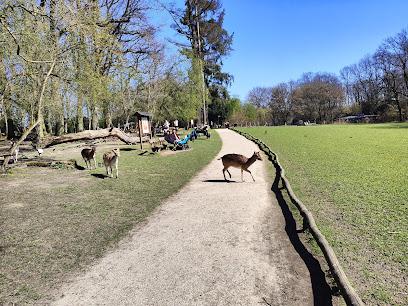
Burgplatz
Discover the charm of Burgplatz, a historical landmark in Düsseldorf, showcasing stunning architecture and vibrant local culture along the Rhine River.
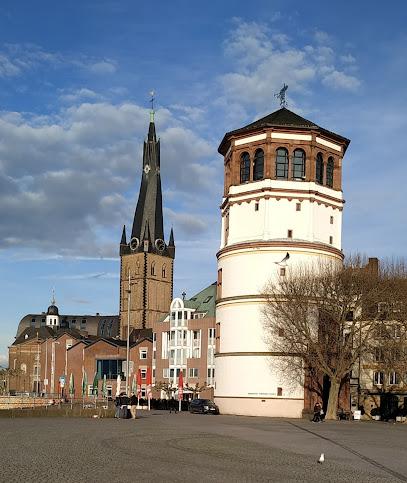
Essential places to dine
Frittenwerk Essen
Discover Frittenwerk Essen – where gourmet meets fast food with delicious fries and diverse toppings for every palate.
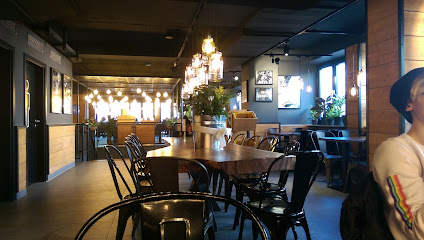
HANS IM GLÜCK - ESSEN Rüttenscheid
Savor gourmet burgers at HANS IM GLÜCK in Essen's Rüttenscheid—where flavor meets sustainability in a cozy atmosphere.
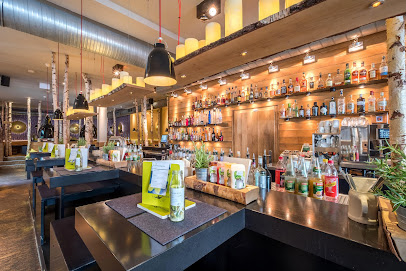
Südtiroler Stuben
Experience the best of South Tyrolean cuisine at Südtiroler Stuben – where tradition meets taste in Essen's culinary scene.
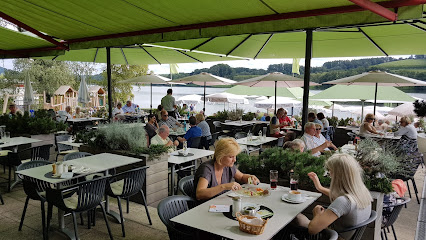
BLOCK HOUSE Essen
Discover delectable steaks and exceptional dining at BLOCK HOUSE Essen – where flavor meets hospitality in every bite.
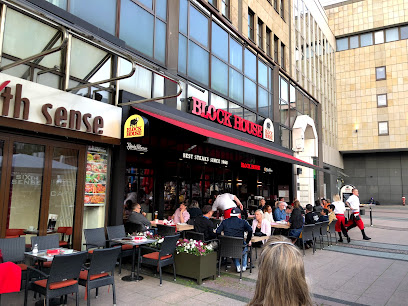
Restaurant Artemis
Experience authentic Greek cuisine in Essen at Restaurant Artemis – where every meal is a celebration of flavor and tradition.
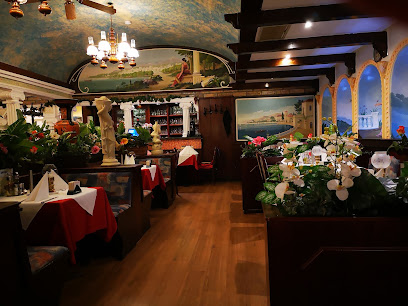
DER LÖWE Becker Gastro GmbH
Discover authentic Bavarian flavors at DER LÖWE in Essen's lively beer garden – where tradition meets taste!
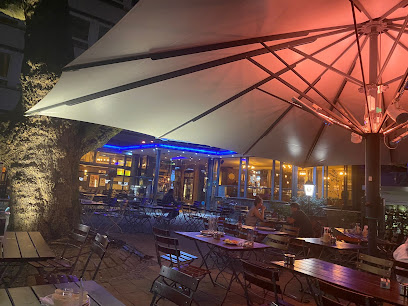
Restaurant Hülsmannshof
Experience authentic German cuisine in a family-friendly atmosphere at Restaurant Hülsmannshof with its charming beer garden.
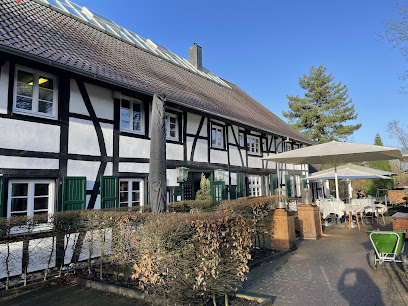
Pfefferkorn Essen
Experience exquisite steaks and warm hospitality at Pfefferkorn Essen - a culinary gem in Germany's vibrant city.
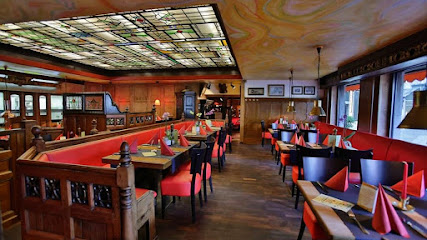
Burger Brothers Essen
Experience gourmet burgers and vegetarian delights at Burger Brothers Essen – a culinary hotspot in the heart of Germany.
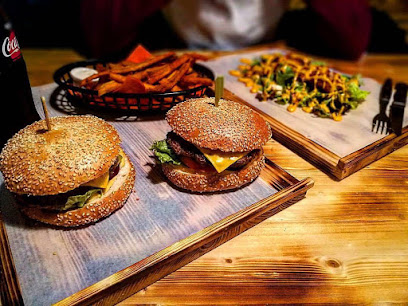
L'Osteria Essen Kennedyplatz
Experience authentic Italian dining at L'Osteria Essen Kennedyplatz with delicious pizzas and pastas in a vibrant atmosphere.
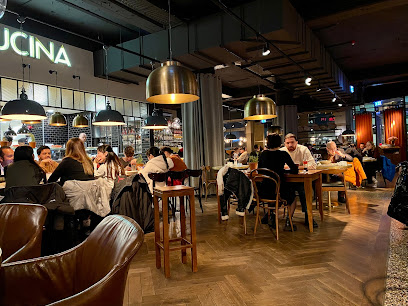
Leo's Casa
Discover authentic Italian dining at Leo's Casa in Essen—where every meal tells a story of flavor and tradition.
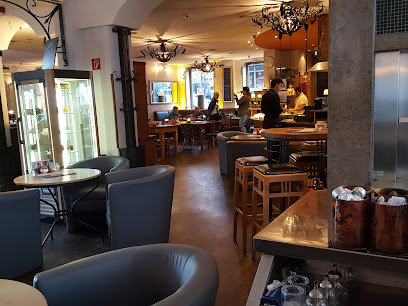
The ASH Essen
Discover exquisite cuisine and an inviting atmosphere at The ASH Essen - where culinary artistry meets warm hospitality.
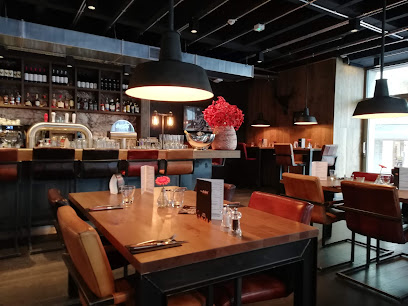
Mongo's Restaurant Essen
Experience the flavors of Asia at Mongo's Restaurant Essen - where Mongolian barbecue meets vegetarian delights in a vibrant setting.
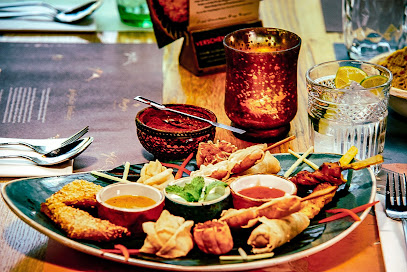
sattgrün theaterpassage
Discover the vibrant flavors of plant-based cuisine at Sattgrün Theaterpassage in Essen – where health meets taste.
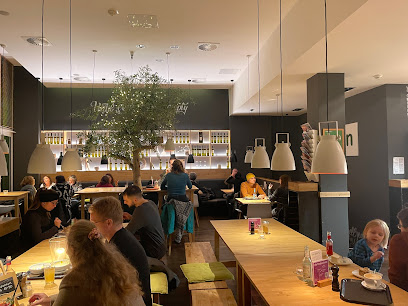
Dunkelrestaurant Finster
Experience dining like never before at Dunkelrestaurant Finster - where taste takes center stage in complete darkness.
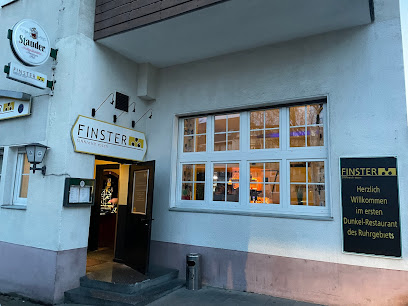
Markets, malls and hidden boutiques
Limbecker Platz
Explore Limbecker Platz, Essen's ultimate shopping destination with diverse stores, dining options, and entertainment for all ages.
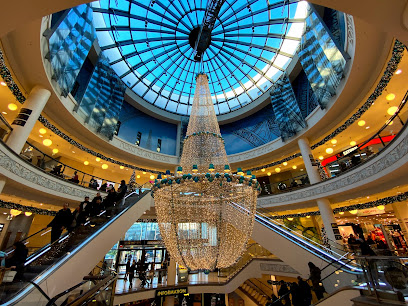
Rathaus Galerie Essen
Explore the vibrant Rathaus Galerie Essen, a shopping paradise with diverse stores, delightful eateries, and lively entertainment options in the heart of the city.
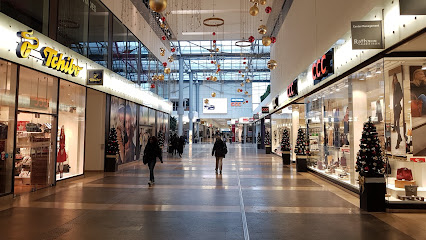
Primark
Discover stylish, affordable fashion at Primark in Essen – the ultimate shopping destination for tourists seeking trendy attire.
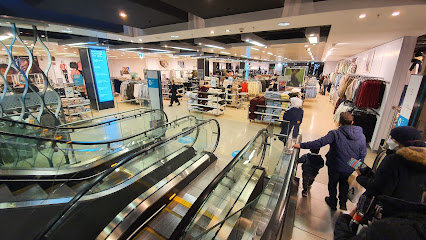
Allee-Center Essen-Altenessen
Explore Allee-Center Essen, a vibrant shopping mall offering diverse stores and delightful dining options in the heart of Essen.
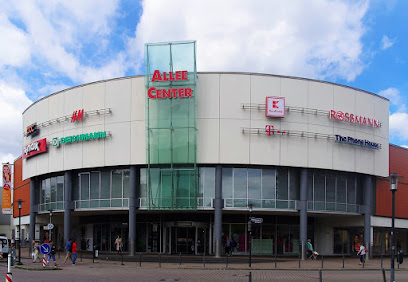
The LEGO® Store Essen
Unleash your inner builder at The LEGO® Store Essen, where creativity and imagination come to life through colorful bricks and exciting activities.
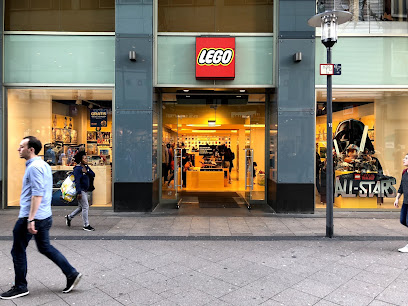
Elbenwald
Discover a whimsical world at Elbenwald in Essen, Germany, where fantasy-themed gifts and collectibles await every pop culture enthusiast.
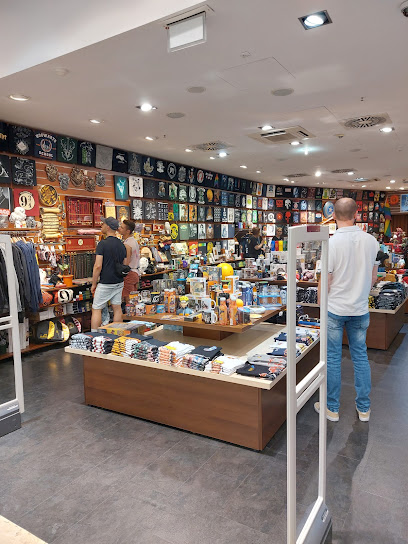
H&M
Explore the latest trends in fashion for all ages at H&M in Essen, your one-stop shop for stylish clothing and accessories.
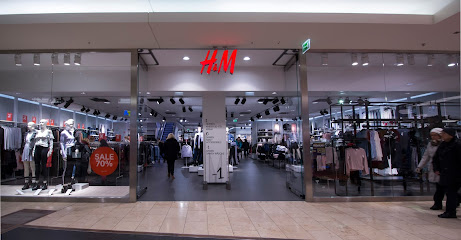
Maisons du Monde
Discover the essence of home decor at Maisons du Monde, where stylish furniture and unique gifts await in the heart of Essen.
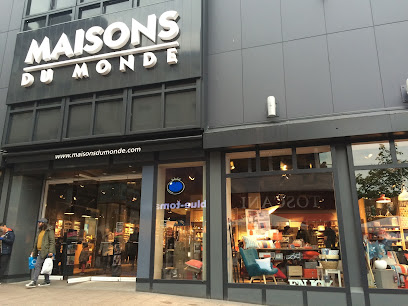
Dark Ages Gothic-Shop Einzelhandel & Versand
Discover a unique blend of gothic fashion, accessories, and shoes at Dark Ages Gothic-Shop in Essen, where style meets dark elegance.
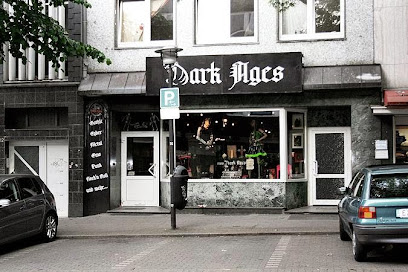
HEMA Amsterdam
HEMA Amsterdam: A Unique Shopping Experience in Essen, Offering a Diverse Range of Gifts, Clothing, and Home Essentials.
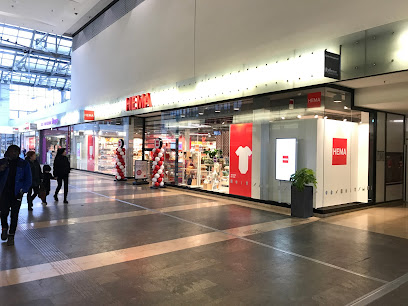
Reserved
Discover the latest fashion trends at Reserved in Essen, where style meets affordability for men and women alike.
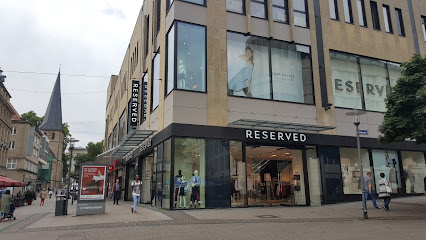
EuroShop
Explore EuroShop in Essen for unique gifts, home goods, and stationery at affordable prices. Perfect for souvenirs and everyday essentials!
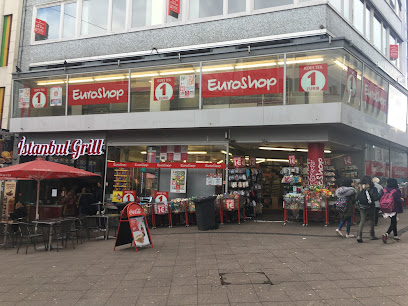
Nanu-Nana
Explore Nanu-Nana in Essen for unique gifts, home decor, and crafting supplies that reflect German creativity and charm.
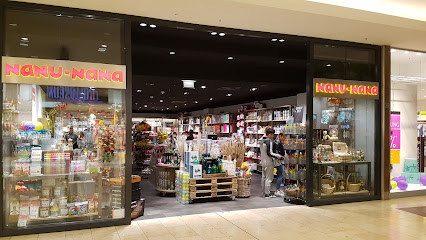
Flying Tiger Copenhagen
Discover a treasure trove of unique gifts, quirky toys, and stylish home goods at Flying Tiger Copenhagen in Essen, where creativity meets affordability.
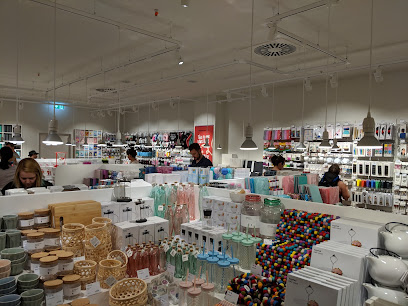
Konsumreform Shop - Die Regalvermietung
Explore the charm of vintage fashion at Konsumreform Shop, Essen's premier destination for sustainable and stylish pre-loved clothing.
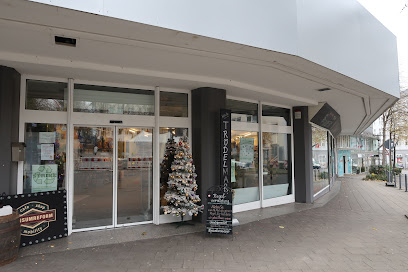
Essential bars & hidden hideouts
Fritzpatrick's Irish Pub
Discover the lively atmosphere of Fritzpatrick's Irish Pub, where authentic Irish cuisine meets vibrant entertainment in the heart of Essen.
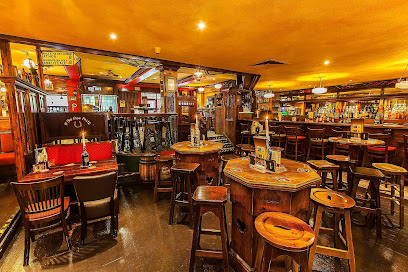
Gin & Jagger - Essen
Experience the lively ambiance and diverse menu at Gin & Jagger in Essen, where great food and drinks meet unforgettable moments.
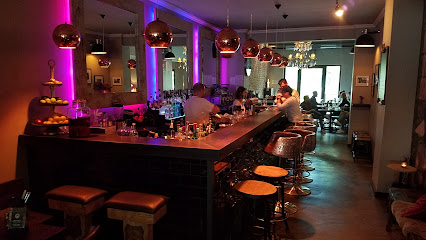
Panoptikum Gaststätte - Essen
Discover the vibrant atmosphere and delectable cuisine of Panoptikum Gaststätte, a top pub and restaurant in Essen, perfect for tourists seeking local charm.
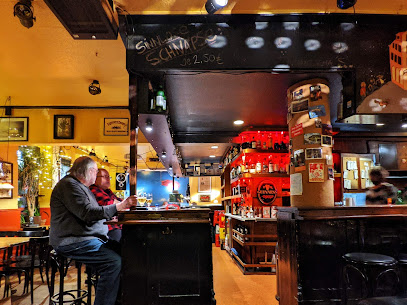
Daktari Cocktailbar
Experience the vibrant atmosphere and innovative cocktails at Daktari Cocktailbar, a top nightlife destination in Essen, Germany.
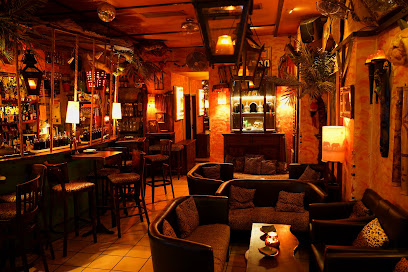
Don't Panic Club & Pub - Essen
Discover the lively Don't Panic Club & Pub in Essen, where flavorful dishes meet a vibrant bar atmosphere perfect for unwinding and socializing.
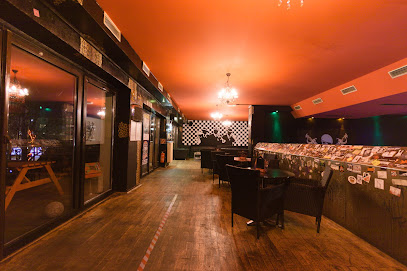
Café Goldbar - Essen
Experience the vibrant nightlife at Café Goldbar in Essen - a stylish bar offering a diverse drink selection and a welcoming atmosphere for all.
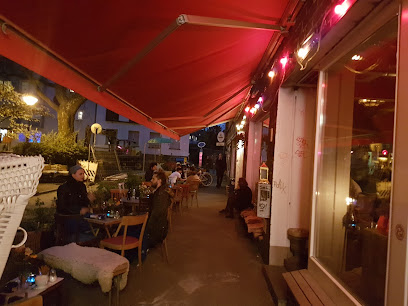
Temple Bar
Experience the vibrant nightlife at Temple Bar in Essen, where friendly vibes meet an extensive drink selection in a lively atmosphere.
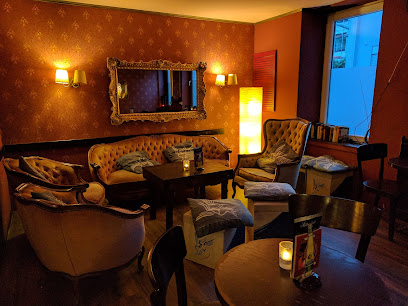
Sailor's Pub
Experience the charm of Sailor's Pub in Essen, where delicious food and a lively atmosphere await every visitor.
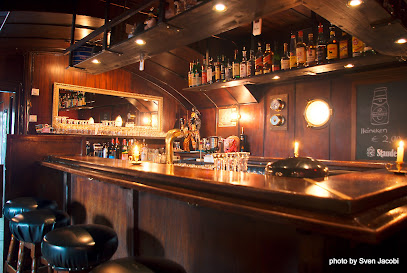
Zum Pümpchen
Discover the lively spirit of Essen at Zum Pümpchen, a local pub offering authentic German cuisine and a welcoming atmosphere.
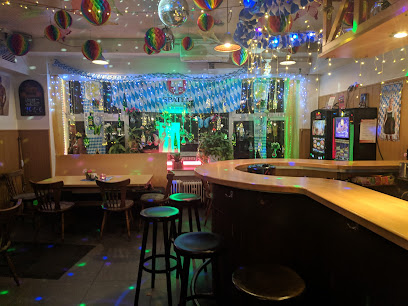
Sixthsense-Bar
Experience the vibrant nightlife at Sixthsense-Bar in Essen, where eclectic drinks and a lively atmosphere await every visitor.
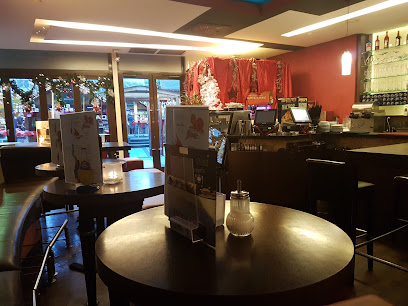
Freak Show Essen
Discover the whimsical charm of Freak Show Essen, a unique bar offering creative cocktails and an eccentric atmosphere in the heart of Essen.
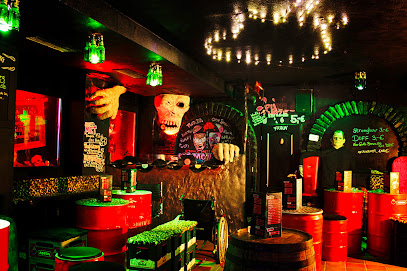
Südrock rock pub - Essen
Experience the electric atmosphere of Südrock Rock Pub in Essen, where live music, great drinks, and vibrant energy come together for an unforgettable night.
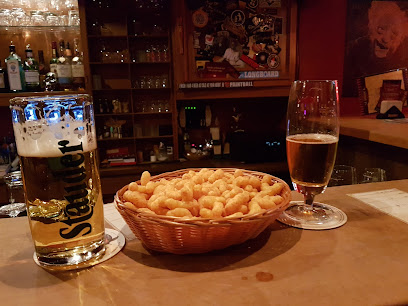
Felis
Experience the vibrant fusion of live music and vegan cuisine at Felis, Essen's premier bar for a unique night out.
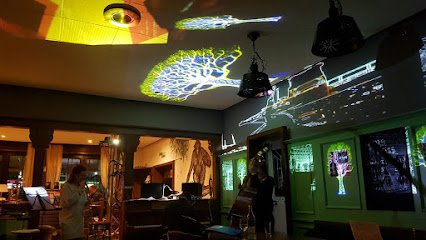
Menehune Cocktailbar
Discover the vibrant Menehune Cocktailbar in Essen, where expertly crafted cocktails and a lively atmosphere await your visit.
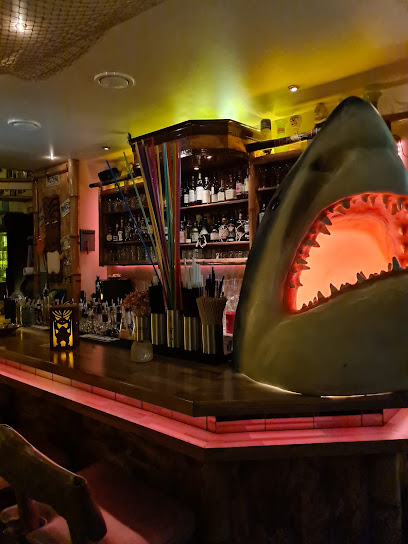
Fcuk Yoga Bar - Essen
Discover the vibrant nightlife at Fcuk Yoga Bar in Essen, where relaxation meets lively entertainment in a welcoming atmosphere.
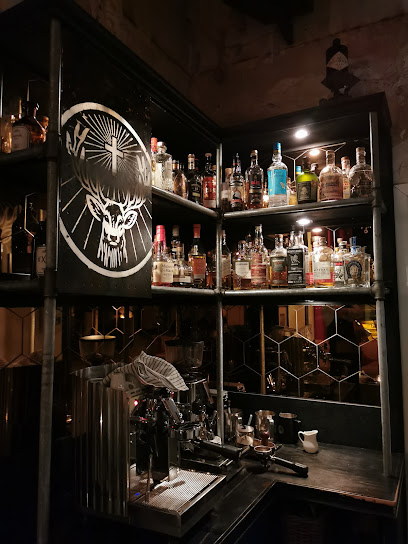
Local Phrases
-
- HelloHallo
[hah-loh] - GoodbyeAuf Wiedersehen
[owf vee-der-zay-en] - YesJa
[yah] - NoNein
[nine] - Please/You're welcomeBitte
[bih-tuh] - Thank youDanke
[dahn-kuh] - Excuse me/SorryEntschuldigung
[ent-shool-dee-gung] - How are you?Wie geht es Ihnen?
[vee gayt es in-en] - Fine. And you?Gut. Und Ihnen?
[goot oont in-en] - Do you speak English?Sprechen Sie Englisch?
[shpre-khen zee eng-lish] - I don't understandIch verstehe nicht
[ikh fair-shtay-e nikht]
- HelloHallo
-
- I'd like to see the menu, pleaseIch möchte bitte die Speisekarte sehen
[ikh mer-khe bit-uh dee shpy-ze-kar-teh zay-en] - I don't eat meatIch esse kein Fleisch
[ikh es-se kine flysh] - Cheers!Prost!
[prohst] - I would like to pay, pleaseIch möchte bitte zahlen
[ikh mer-khe bit-uh tsah-len]
- I'd like to see the menu, pleaseIch möchte bitte die Speisekarte sehen
-
- Help!Hilfe!
[hil-fuh] - Go away!Geh weg!
[geh veg] - Call the Police!Rufen Sie die Polizei!
[roo-fen zee dee poh-lee-zye] - Call a doctor!Rufen Sie einen Arzt!
[roo-fen zee i-nen artsht] - I'm lostIch habe mich verirrt
[ikh hah-buh mikh fair-eert] - I'm illIch bin krank
[ikh been krank]
- Help!Hilfe!
-
- I'd like to buy...Ich möchte ... kaufen
[ikh mer-khe ... cow-fen] - I'm just lookingIch schaue nur
[ikh show-eh noor] - How much is it?Wie viel kostet es?
[vee feel kohs-tet es] - That's too expensiveDas ist zu teuer
[dahs ist tsoy toy-er] - Can you lower the price?Können Sie den Preis senken?
[kern-en zee den prys zen-ken]
- I'd like to buy...Ich möchte ... kaufen
-
- What time is it?Wie spät ist es?
[vee shpayt ist es] - It's one o'clockEs ist ein Uhr
[es ist iyn oor] - Half past (10)Halb zehn
[halb tsayn] - MorningMorgen
[mor-gen] - AfternoonNachmittag
[nahkh-mit-tahk] - EveningAbend
[ah-bent] - YesterdayGestern
[ges-tern] - TodayHeute
[hoy-tuh] - TomorrowMorgen
[mor-gen] - 1eins
[iyns] - 2zwei
[tsvay] - 3drei
[dry] - 4vier
[feer] - 5fünf
[fuhnf] - 6sechs
[zeks] - 7sieben
[zee-ben] - 8acht
[ahkt] - 9neun
[noyn] - 10zehn
[tsayn]
- What time is it?Wie spät ist es?
-
- Where's a/the...?Wo ist ein/der...?
[voh ist iyn/der] - What's the address?Was ist die Adresse?
[vahs ist dee ah-dres-seh] - Can you show me (on the map)?Können Sie mir zeigen (auf der Karte)?
[kern-en zee meer tsay-gen (ouf der kar-teh)] - When's the next (bus)?Wann kommt der nächste (Bus)?
[vahn kohmt der nakh-ste (boos)] - A ticket (to ....)Eine Fahrkarte (nach ...)
[i-nuh fahr-kahr-teh (nakh)]
- Where's a/the...?Wo ist ein/der...?
History of Essen
-
Essen's history traces back to 845 AD when the Essen Abbey was founded by Altfrid. This Benedictine monastery became a significant religious and cultural center, fostering the city's early development. The Essen Abbey was home to influential abbesses who played pivotal roles in the Holy Roman Empire, including Mathilde, granddaughter of Emperor Otto I.
-
Essen transformed dramatically during the 19th century Industrial Revolution. The founding of the Krupp family’s steel empire in 1811 by Friedrich Krupp marked the city's emergence as an industrial powerhouse. Krupp AG became synonymous with Essen, producing steel, armaments, and machinery that fueled Germany's industrial growth. The Krupp family’s Villa Hügel, an opulent mansion, stands as a testament to their influence.
-
Essen played a crucial role during World War II as a major industrial hub, making it a target for Allied bombing. The city was heavily damaged, with significant portions of its infrastructure and historical sites destroyed. Post-war, Essen underwent extensive reconstruction, revitalizing its economy and infrastructure. The Zollverein Coal Mine Industrial Complex, a former coal mine, symbolizes the city's industrial heritage and post-war recovery.
-
The Zollverein Coal Mine Industrial Complex, once the largest and most productive coal mine in Europe, was designated a UNESCO World Heritage Site in 2001. This site represents the zenith of the Ruhr Valley's industrial prowess and has been transformed into a cultural venue with museums, galleries, and event spaces, showcasing the region's industrial history and cultural renaissance.
-
In 2010, Essen was designated as the European Capital of Culture, representing the Ruhr region. This honor recognized Essen's transformation from an industrial city to a cultural hub. The city boasts numerous cultural institutions, including the Museum Folkwang, known for its impressive art collections, and the Aalto Theatre, a premier venue for opera and ballet.
-
Essen has reinvented itself as a green metropolis, focusing on sustainability and environmental initiatives. In 2017, it was awarded the title of European Green Capital, highlighting its efforts in reducing pollution, promoting green spaces, and improving the quality of life for its residents. The city's extensive parks, such as the Grugapark, and its commitment to renewable energy and public transportation reflect this modern identity.
Essen Essentials
-
Essen is well-connected and easily accessible from various cities in Germany and other parts of Europe. The closest major airport is Düsseldorf International Airport (DUS), located about 30 kilometers away. From the airport, you can take a direct train to Essen Hauptbahnhof (main train station), which takes approximately 30 minutes. Alternatively, you can fly into Cologne Bonn Airport (CGN) or Dortmund Airport (DTM) and reach Essen by train or bus. Essen is also well-served by Germany's extensive rail network, with frequent trains from major cities like Berlin, Hamburg, and Munich.
-
Essen has an efficient and reliable public transportation system, including trams, buses, and trains operated by the Rhein-Ruhr Verkehrsverbund (VRR). Purchasing a day ticket or multi-day pass can be cost-effective if you plan to travel frequently. Taxis are also available, but they can be more expensive. For a more eco-friendly option, consider renting a bike through the city's bike-sharing program. If you prefer driving, car rental services are available, but parking in the city center can be challenging.
-
Germany uses the Euro (EUR) as its official currency. Credit and debit cards are widely accepted in most hotels, restaurants, and shops. However, some smaller establishments may only accept cash. ATMs (Geldautomaten) are plentiful throughout Essen, and it's advisable to carry some cash for smaller purchases and tips. Contactless payments via smartphones are also becoming more common.
-
Essen is generally a safe city for tourists, but it's always wise to take standard precautions. Avoid poorly lit areas at night and be cautious of pickpockets in crowded places like public transport and tourist attractions. Neighborhoods such as Altendorf and parts of Vogelheim have higher crime rates compared to other areas, so exercise increased caution if visiting these areas. Keep your belongings secure and be aware of your surroundings.
-
In case of an emergency, dial 112 for immediate assistance, which connects you to police, fire, and medical services. The main hospital in Essen is the Universitätsklinikum Essen, which provides comprehensive medical care. Pharmacies (Apotheken) are available throughout the city for minor health issues, and many have emergency services outside regular hours. It's also advisable to have travel insurance that covers medical emergencies.
-
Fashion: Do dress comfortably but neatly. Casual wear is acceptable, but avoid overly revealing clothing. Religion: Do respect religious sites by dressing modestly and keeping noise to a minimum. Public Transport: Do validate your ticket before boarding and give up your seat to elderly passengers. Don't eat or drink on public transport. Greetings: Do greet people with a firm handshake and maintain eye contact. It's common to use 'Guten Tag' (Good day) or 'Hallo' (Hello). Eating & Drinking: Do try local dishes and beers. It's polite to wait until everyone is served before starting your meal. Don't tip excessively; 5-10% is generally sufficient.
-
To experience Essen like a local, visit the weekly markets such as the one at Rüttenscheid, where you can buy fresh produce and local delicacies. Attend a performance at the Aalto Theatre or Philharmonie Essen for a taste of the local arts scene. Exploring the Zollverein Coal Mine Industrial Complex, a UNESCO World Heritage site, offers insight into the city’s industrial history. Don’t miss the Grugapark, a large city park perfect for a leisurely stroll or picnic.
Nearby Cities to Essen
-
Things To Do in Dusseldorf
-
Things To Do in Cologne
-
Things To Do in Munster
-
Things To Do in Bonn
-
Things To Do in Nijmegen
-
Things To Do in Arnhem
-
Things To Do in Aachen
-
Things To Do in Maastricht
-
Things To Do in Eindhoven
-
Things To Do in Genk
-
Things To Do in Koblenz
-
Things To Do in Hasselt
-
Things To Do in Spa
-
Things To Do in Zwolle
-
Things To Do in Liege













